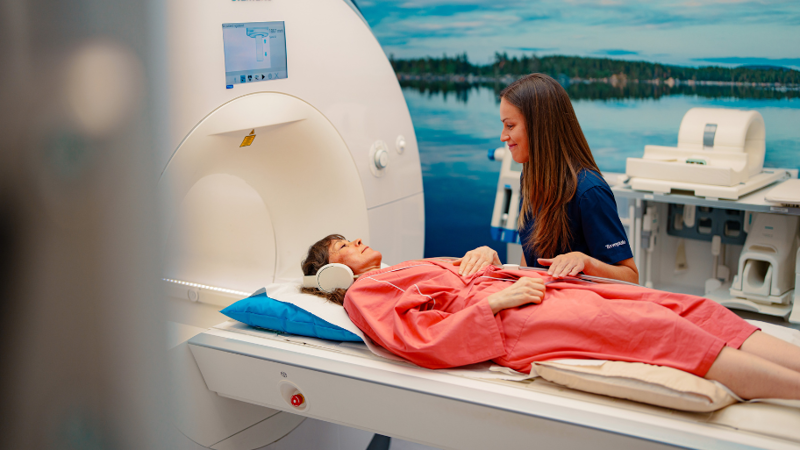AI learns to predict mental health diagnoses, results can be used for prevention
Artificial intelligence learned to identify traits that can predict a future mental health diagnosis from responses to an occupational health questionnaire assessing health and wellbeing, according to a study by Terveystalo and the Finnish Institute of Occupational Health. The finding sheds light on the potential of AI in identifying and preventing mental health problems.

The National Institute of Occupational Health, together with Terveystalo, carried out a study in which artificial intelligence searched for factors predictive of mental health diagnosis from health questionnaire responses.
– The use of AI and machine learning can make healthcare processes more efficient, faster and more accurate in the future. In the future, we will be able to do complex things without human hands, which will bring significant benefits in terms of time allocation for healthcare professionals. The development of algorithms needs to be done responsibly, and regulation in this area is not yet fully complete," said Simo Taimela, senior epidemiologist at Terveystalo, who was involved in the study.
Mental health disorders account for a significant proportion of sick leave: they are also the main cause of disability in Finland
Mental health problems are currently the biggest cause of longer sick leave and disability in Finland. Early identification and prevention of mental health problems is increasingly important for working life.
– New approaches offered by data-driven approaches can increase the quality and effectiveness of care. By predicting the risks of illness, we can intervene proactively to prevent risk factors, prevent the onset of illness and thus reduce mental health-related sickness absence and disability. Anticipating the need for treatment also helps to better allocate specialist resources, which can in turn ease the treatment gap," adds Taimela.
Predictors of mental health diagnosis included factors related to mood and sleep, and study revealed gender differences
In the study, questions about feeling stressed, daytime fatigue and sadness were the most predictive of a future mental health diagnosis. The AI also recognised that age and gender matter.
– For example, the experience of a hopeless future and income from work may predict a future mental health diagnosis more in men than in women. For women, work-life balance also emerged as one of the most important factors. Among physical symptoms, headaches and poor sleep played a role," says Taimela.
Early treatment of mental challenges is important
Daytime fatigue, which emerged as one of the predictive signals in the study, can be caused by sleep problems or a lack of adequate recovery.
– If you are experiencing daytime fatigue or sadness, getting preventive support quickly is important. Help can be sought through low-threshold discussion channels or from an occupational health psychologist, says Sari Nuikki, senior occupational health psychologist at Terveystalo.
It is important to treat all mental health challenges early, not after symptoms have become prolonged or chronic. For example, brief psychotherapy in occupational health has been shown to be effective in preventing mental health absenteeism and diagnoses.
– Fortunately, the stigma around mental health is receding and people are daring to talk about it more openly. For example, the number of visits to Terveystalo for anxiety and depression diagnoses has increased by about a third in the 2020s," says Nuikki.
Employers are now also more strongly expected to recognise and manage mental stress
In the June update of the Occupational Safety and Health Act, employers' obligations were clarified and they are now also more strongly required to identify and manage psychosocial stress. Here, too, AI data can help in the future.
Front-line workers, as the employer's representative, have a key role to play in identifying and preventing harmful stress.
– Harmful psychosocial stress can be caused, for example, by excessive data volumes, constant interruptions, difficult customer situations, excessive workloads and dysfunctions in the functioning of the work community. When we detect early warning signs of mental health problems, it is important to intervene as early as possible to avoid deepening problems," says Nuikki.
The study in brief
- The data for the study consisted of occupational health questionnaires and mental health diagnoses from 11,828 occupational health clients of Terveystalo.
- Those with a diagnosis before completing the questionnaire were removed and the follow-up period from completing the occupational health questionnaire to a possible mental health diagnosis was limited to two years.
- Guided machine learning was used to classify the data.
A classifier trained with questionnaire responses was clearly better than a random classifier, but questionnaire responses alone cannot yet predict mental health diagnoses in individual cases with complete confidence. - Managing and supporting well-being at work requires skilled and adequately resourced people to do the everyday things that support workers' well-being.
Read more occupational health articles

How technology helps relieve mental stress: "When the load is high, the threshold must be low."
Mental health disorders have overtaken musculoskeletal disorders, which had long been the leading cause of sick leave. Work is changing, and the range of sick leave caused by mental health issues has also changed. We must be able to offer new solutions to this challenge.

Extensive data set of 200,000 samples: Nightingale study reveals link between illness risks and sick leave
Data from the Finnish Nightingale study, which is used in Terveystalo's occupational health services, reveals a clear link between lifestyle-related health risks and sick leave. The exceptionally extensive data set of over 200,000 customers shows that people with a low risk of illness had significantly fewer absences, while those in high-risk groups had more absences. The results highlight the importance of preventive healthcare in ensuring work ability and the competitiveness of companies.

Strong identification speeds up your service experience when calling us
Soon you can identify yourself easily and securely before your call is answered. Read below to see how the identification process works.

Terveystalo's digital services have been awarded the internationally recognized ISO27001 information security certification.
Terveystalo's information security practices, processes, and risk management are in line with international best practices.

Does massage help relieve stress? – Touch restores and calms the body and mind
Stress is not always visible on the outside, but the body does show signs when the strain increases. According to Lassi Ylönen, a trained massage therapist at Terveystalo Rela, the body often communicates stress through subtle signs.

Circular economy and artificial intelligence boost performance and improve care
At the heart of sustainable healthcare, technology serves as a tool for improving both the quality of care and accountability. Terveystalo favors solutions that combine sustainability, cost-effectiveness, and medical expertise.